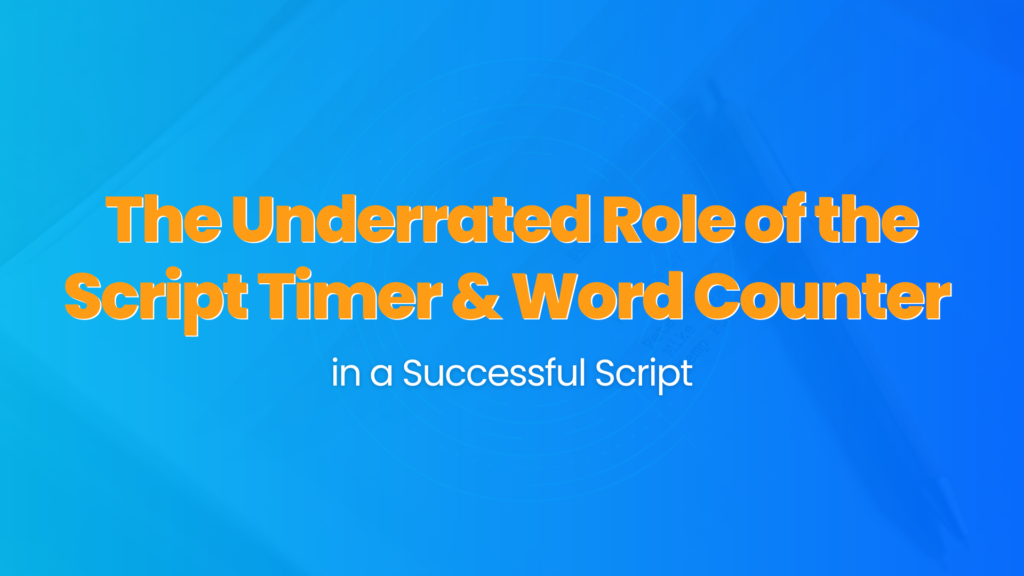If you’ve ever dipped your toes in the deep waters of scriptwriting, you’ve likely encountered the term script timer. A practical tool, the script timer calculates the probable duration of your script when spoken. But here’s a question for you: Is a script timer the only essential part of creating a successful script? Far from it! Let’s take a deep dive into the world of scriptwriting and see how the script timer fits into the bigger picture.
The Script Timer: Not Just a Stopwatch!
It’s a sunny day. Imagine you’re a director, scanning your script, eyes darting between lines and envisioning the final production. You have precisely 5 minutes to convey a gripping story. This is where the magic of a script timer comes in handy. Providing an estimated run time for your piece ensures that your script fits snugly within your time constraints.
However, as crucial as it is, the script timer is only one cog in the complex machinery of scriptwriting. Here are five critical elements that, combined with an effective script timer, lead to a remarkable script.
1. Engaging Narrative and Plot
While a script timer ensures you don’t overextend, an engaging narrative ensures you captivate your audience. A well-timed script is great, but if the story is drab, your script risks being forgettable. If you ever need help crafting powerful stories, here are great lessons you can use to start.
2. Character Development
Imagine watching a movie with flat, uninteresting characters. Even if the duration was perfect, you’d probably forget it by next week. Great scripts have well-developed characters, ones that audiences remember for years to come.
3. Powerful Dialogues
They say actions speak louder than words, but in scriptwriting, dialogues are your actions. Craft them to convey emotions, drive the story forward, and engage the listener or viewer. A well-timed script with lackluster dialogues is a wasted opportunity.
4. Research and Authenticity
This might sound a tad technical, but ensuring your script is grounded in reality can make a world of difference. If you’re writing a script about a neurosurgeon, make sure your terminologies and situations are accurate. Guess what helps here? Research and resources like this.
5. Feedback and Iteration
Never underestimate the power of feedback. A script isn’t written in a day. After you’ve used your timer and penned down the story, get feedback. Then, revise. This iterative process ensures your script isn’t just well-timed, but well-executed too.
Relating Script Timing to Common Business Practices
In the business world, think of the script timer as the timeline for a project. While hitting the deadline is crucial, the quality of what’s delivered is paramount. It’s a delicate balance of time and substance. Just as businesses rely on planning and strategic implementation, scriptwriters use tools like the script timer in tandem with creativity to produce a compelling masterpiece.
In Conclusion: The Symphony of Scriptwriting
Let’s wind down our little expedition. Just like a symphony, every element in scriptwriting, from character development to dialogues to the script timer, has its part to play. But remember, timing is only a single note in the grand composition.
Want to explore more about how other tools influence scriptwriting? Here’s some suggested reading:
Until next time, keep scripting, and let your creativity flow!
Three Things you can do to keep fast track of your learning:
- Connect on Linkedin as I share valuable lessons weekly.
- Fast track your learning: Get the 6 Steps plus 15 years of Hollywood and Agency experience in one Workshop and masterclass.
- Use the template: 18 Scripts that Sell (also included in every Script-Timer plan.)





